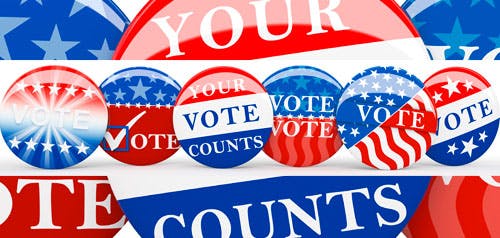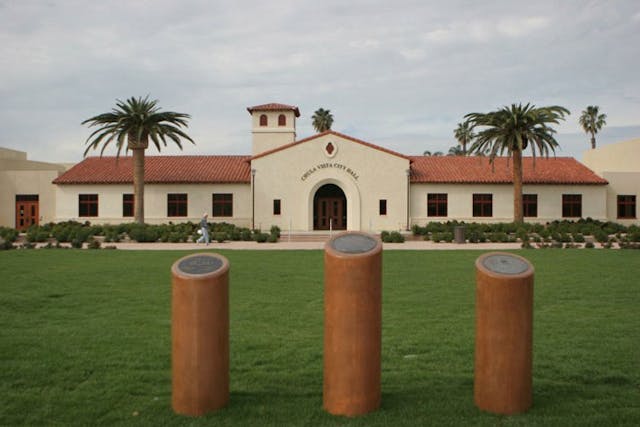NFL Protest was About Race, Now It’s About Free Speech

By now, just about everyone in the country has heard about NFL players kneeing during the National Anthem. What started as a quiet, peaceful protest by one player has become a national conversation about race, racism, and freedom of speech.
Then-San Francisco 49ers Quarterback Colin Kaepernick began sitting during the Anthem last season to protest police brutality against African-Americans, including several shootings deaths.
For the first few games, few people even noticed the single player sitting during the song. When he finally spoke about it, Kaepernick said he couldn’t stand for a flag that represents a country that oppresses blacks and other people of color.
Later, Kaepernick began taking a knee during the Anthem, and soon, some of his teammates joined him, and lately other teams’ players began kneeling, as well.
The young football players were not the first athletes to use their public exposure to draw attention to social injustices: track and field athletes John Carlos and Tommie Smith raised their clinched fists during the Anthem after winning medals at the 1968 Olympics (they were later banned from competing in the international games); NBA players, including LeBron James, wore hoodies during warm ups after the shooting death of Trayvon Martin; and NBA players wore shirts in support of the Black Lives Matter movement after Eric Garner died while in police custody.
These and many other smaller protests by other athletes, primarily African-Americans ones, have been peaceful, quiet, and impactful.
The protests seek to draw attention to the issues of racial profiling, police brutality, and racial inequality in the United States criminal justice system.
This year, as the number of NFL players taking a knee during the Anthem grew, so did the political responses to their protests.
A few weeks ago, Donald Trump spoke out against the protests when he said he thought team owners should “get that son of bitch off the field right now”, referring to any player that kneels during the Anthem.
Out of nowhere, as he usually does, Trump jumped on a topic and, as he usually does, turned it into a full on wedge issue that no longer resembles the original issue at hand.
Trump said team owners should force players to honor the flag and our military by standing during the Anthem. He thinks players should be fired if they don’t stand.
The NFL has rules that state players should stand during the song, but the rule does not describe a penalty. Owners could force players to stand and even cut them for it according to their contracts. And even sponsors could pressure athletes by cutting their lucrative endorsement deals.
But, the point of the protests was to expose racial biases against blacks, a populations of Americans that face disproportionately high incarceration rates, longer prison sentences, and higher rates of death by police shootings.
The NFL knows that squashing these peaceful protests would look like political censorship against the very group the protests seek to support. It also would make painfully obvious the fact that NFL owners are 97% white and control teams with a racial makeup of 68% black. Bad optics.
This past weekend, Vice-President Mike Pence took the issue to a new high, or low, when he attended a Colts games against the 49ers, only to leave when players from both teams knelt. Pence said he joined Trump in protesting the protest.
Both Trump and Pence have now turned the issue into disrespecting the flag and the military, instead of the stated focus of racial bias in America.
This week, Trump suggested that the NFL teams should lose tax breaks they receive because of the protests.
This new attack by Trump is starting to sound a lot more like government censorship, the exact sacred ground of the First Amendment’s freedom of speech and expression. Threats from the President of the United States to take punitive actions in response to a political protest is exactly what the freedom of speech and expression sought to protect us from Americans don’t enjoy absolute freedom of speech. We can’t unjustifiably yell “fire” in a crowd, we can’t slander others, and we can’t incite violence, just to name a few.
And NFL players could be forced to obey their contracts, rules, and conditions of employment, or face termination by their bosses. That’s all legal.
The protections of the First Amendment are designed to protect us from government censorship or suppression of ideas, speech, and protests, especially political ones.
The Supreme Court has twice struck down laws against burning an American flag as unconstitutional. In both cases, conservative Justices Antonin Scalia and Anthony Kennedy voted to overturn the laws, citing flag burning as a protected form of symbolic expression.
So, you can burn a flag, wear a flag printed on your underwear, bikini, an even socks. That’s all legal.
But, for some reason, professional football players taking a knee during the playing of the National Anthem in silent protest against the real issue of racism in this country has become an insult to the flag, our military, and our President.
Our government is based on the inalienable rights of life, liberty, and the pursuit of happiness. Our freedoms are sacred, powerful, and, at times, may be uncomfortable for others. But that’s what freedom is all about.
Black athletes protesting at the start of games is a powerful political statement, and they should be allowed to continue without fear of retribution.
They could have decided to burn a flag; instead, they chose a peaceful gesture. In some ways, it was more powerful. Maybe that’s what’s bothering so many people.
Rosa Parks didn’t pick a fight, she just quietly refused to move from her seat on the bus. Martin Luther King, Jr. didn’t make threats, he led peaceful marches. The cause of civil rights in America has progressed through acts of peaceful and legal defiance, and we are all better for them.
In her 1903 book about the life of Voltaire, Evelyn Beatrice Hall summarized his Enlightenment thinking in one sentence: “I disapprove of what you say, but I will defend to the death your right to say it.” Her statement perfectly illustrates the careful balance required in a truly free society.
We must defend others’ rights in order to preserve our own.
Our freedom depends on it.



 Arturo Castañares
Arturo Castañares


